Open the medicine cabinet in any home and one of the most recognizable products you’ll find is pain medication. From easing back pain to a headache, grabbing pain relievers is almost second nature in our modern-day practices of medicine. However, the recent increase of prescription pain medication addiction (commonly used names include Vicodin1, OxyContin and Percocet) has taken the seemingly innocent practice of pill popping and turned it into a deadly affair.
In 2015 alone over 15,000 people died from overdose of prescription opiates (pain killers that fall in the category of narcotics). Beyond those who tragically lose their life, abuse and dependence are ever increasing.
It’s been reported that 1 in 4 people who receive prescription opioid pain medication eventually become dependent on them. In fact, statistics show over 2 million Americans have an addiction to pain medication. And each day across the country, over 1,000 people are treated in the ER for abuse/misuse of prescription pain medication.
Perhaps you are reading this article because you are struggling or know someone who is. With little intention, the basic need to medicate pain (physical or emotional) that is so freely supported in our culture placed you or someone you love in bondage. Now, the shame, despair, fear and isolation is crushing your life, leaving you without hope or resources to know what to do next.
Understanding more about prescription medications and how they relate to the addictive cycle can help forge a journey of hope. Addiction, whether by prescription or illicit use, holds the physical body hostage using out-of-control cycles of substance withdrawal. The pain that originally provoked the need to medicate eventually becomes a lessor issue as a physical and emotional dependence to the drug increases.
Any addiction, whether prescription-based or illicit, damages the emotional and spiritual structure of a person’s life. Drug use can numb the feelings of various insecurities, fear, anger, broken relationships, shame, guilt and many other negative internal struggles. Because they take the role of false comfort, they can in truth replace the need for God’s comfort and the ability to access the resources of His power, love and grace.
Always seeking the next high is a full-time, all-consuming activity that will, if allowed, eat away at everything else.
The irony is that prescription drugs were created to seemingly serve the needs of the person in pain. But in truth, once dependence evolves, the opposite occurs. What initially worked for the person eventually switched and the person began to work for the drug. The addicted person literally gets taken captive and becomes a slave to the drug. Accepting the truth about prescription medication can help empower you to plan and overcome its perilous effect should addiction set in.
Understanding How Opioids Affect the Body
Opiates are derived from the poppy plant. They have a chemical structure that is able to block the brain’s sense of pain. They do this by binding to opiate receptors located in the brain, spinal cord and other areas that can disrupt the pain signal. These receptors are surrounded with neurotransmitters, which are chemicals that send messages to the brain which excite or depress various bodily functions.
Neurotransmitters are responsible for pleasure, sleep, mood and many other bodily reactions. Opiate prescription pain killers affect the process of neurotransmission by slowing down the body’s central nervous system. This creates a euphoric high and sense of temporary peace. But the effect isn’t long lasting. Eventfully they will wear off, requiring more of the substance to maintain not only the absence of physical pain, but the false euphoria that accompanies it.
There are thus many risks involved in using opioid derived medication long term. First, prescription opioids mimic and replace the role of organically created neurotransmitters by producing a counterfeit. This causes the body to cease production of its own supply, while craving more of the drug to meet its need. Over time, the body needs higher doses to reach the same desired effect. It builds a tolerance and demands larger amounts. The effects of the drug don’t necessarily change, but over time both the amount and frequency of use typically increases. With it, just as the body’s dependence on the drug increased, so has the sickness the body will experience when the drug is discontinued and the body goes into withdrawal.
It should be noted that pain medication is utilized because it works, and more people than not will have a problem requiring it. Thus, this article isn’t suggesting a ban on these pills, rather that people understand what happens when and if addiction does occur.
Addiction has no borders. It doesn’t matter what a person’s background, religious affiliation, race, size, socio-economic status, etc. is. Addiction has no boundaries or favorites. All are welcome.
Need more information? Please continue to read additional resources or simply pick up the phone and call us right now. We can help you sort through your options with a free and no pressure consultation.
866.543.3361
New Life Spirit Recovery Admissions
